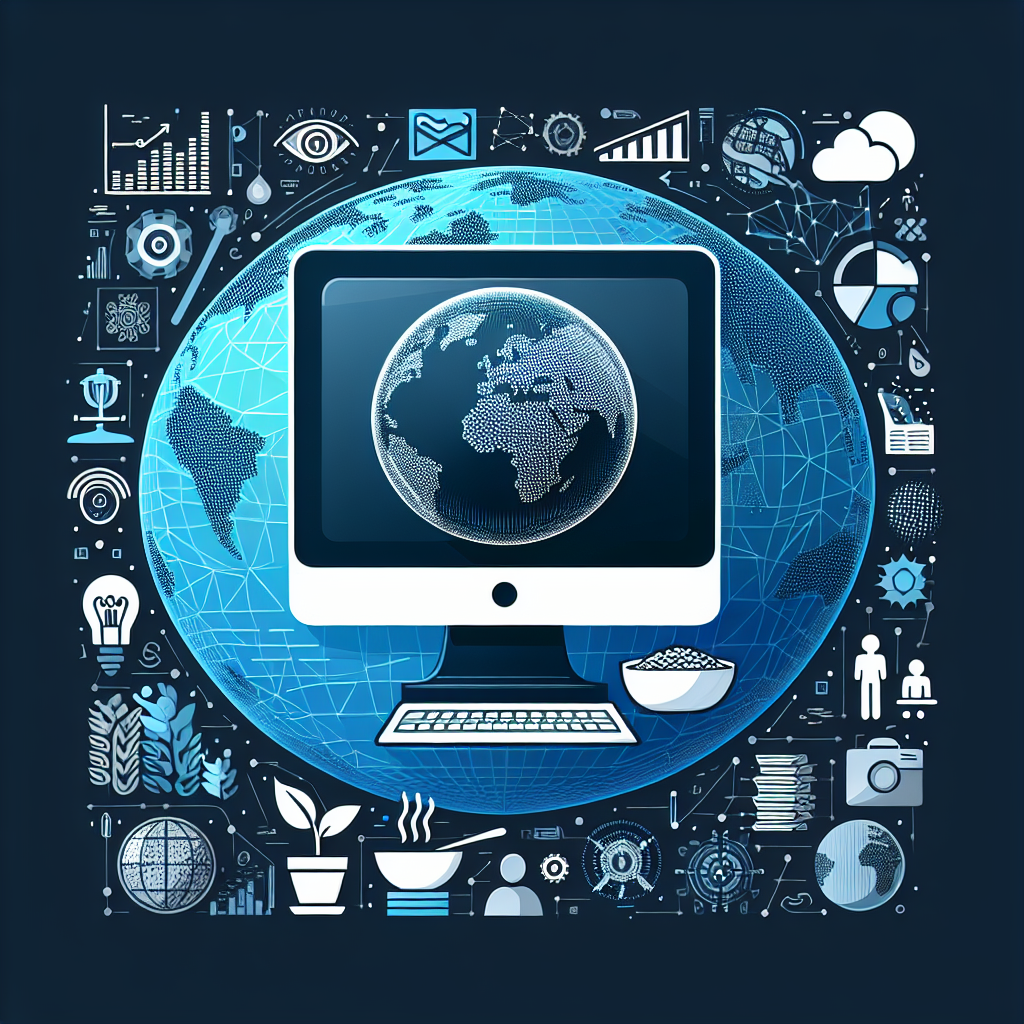Artificial General Intelligence (AGI) is a term used to describe a type of artificial intelligence that possesses the ability to understand, learn, and apply knowledge across a wide range of tasks. While current AI systems are highly specialized and limited in scope, AGI aims to replicate human-like intelligence and reasoning capabilities.
The potential of AGI to solve global challenges such as climate change, poverty, and more is immense. With its ability to analyze vast amounts of data, identify patterns, and make decisions based on complex information, AGI has the potential to revolutionize how we approach these pressing issues.
Climate change is one of the most urgent global challenges facing humanity today. The rise in global temperatures, extreme weather events, and melting ice caps are all signs of the impact of human activities on the environment. AGI can play a crucial role in combating climate change by helping to optimize energy production, improve resource management, and develop innovative solutions for reducing carbon emissions.
One way AGI can help address climate change is by analyzing data from various sources to identify the most effective strategies for reducing greenhouse gas emissions. By simulating different scenarios and predicting their outcomes, AGI can help policymakers make informed decisions on how to best allocate resources and implement policies that will have the greatest impact on reducing emissions.
Additionally, AGI can assist in monitoring and managing natural resources more efficiently. By analyzing satellite imagery, weather patterns, and other data, AGI can help identify areas at risk of deforestation, desertification, or other environmental threats. This information can then be used to develop strategies for conservation and sustainable resource management.
Poverty is another global challenge that AGI can help address. With its ability to analyze economic data, identify trends, and make predictions, AGI can provide valuable insights into the root causes of poverty and suggest effective strategies for poverty alleviation.
For example, AGI can help identify regions or communities that are most at risk of poverty and suggest targeted interventions to improve access to education, healthcare, and economic opportunities. By analyzing data on income distribution, employment rates, and other factors, AGI can help policymakers design more effective social welfare programs and economic policies that address the underlying causes of poverty.
AGI can also play a role in healthcare, education, and other sectors by providing personalized services and solutions tailored to individual needs. By analyzing vast amounts of data on patient outcomes, educational performance, and other factors, AGI can help identify trends and patterns that can inform more effective treatment plans, educational strategies, and policy decisions.
While the potential of AGI to solve global challenges is significant, there are also concerns about the ethical implications of its use. Questions about data privacy, bias in algorithms, and the impact on jobs are all important considerations that must be addressed as AGI continues to develop.
In order to address these concerns, it is essential to develop robust ethical guidelines and regulatory frameworks for the use of AGI. Transparency, accountability, and inclusivity should be key principles guiding the development and deployment of AGI systems to ensure that they are used in ways that benefit society as a whole.
Despite these challenges, the potential of AGI to solve global challenges such as climate change, poverty, and more is immense. By harnessing the power of artificial intelligence to analyze data, identify patterns, and make informed decisions, AGI has the potential to revolutionize how we address these pressing issues and create a more sustainable and equitable future for all.
FAQs:
Q: What is the difference between AGI and other forms of artificial intelligence?
A: AGI is a type of artificial intelligence that aims to replicate human-like intelligence and reasoning capabilities across a wide range of tasks. Unlike current AI systems, which are highly specialized and limited in scope, AGI has the ability to understand, learn, and apply knowledge in a general sense.
Q: How can AGI help address global challenges such as climate change and poverty?
A: AGI can help address global challenges by analyzing vast amounts of data, identifying patterns, and making informed decisions based on complex information. By simulating different scenarios, predicting outcomes, and suggesting targeted interventions, AGI can provide valuable insights into the root causes of these issues and suggest effective strategies for addressing them.
Q: What are some of the ethical concerns associated with the use of AGI?
A: Some of the ethical concerns associated with the use of AGI include questions about data privacy, bias in algorithms, and the impact on jobs. It is essential to develop robust ethical guidelines and regulatory frameworks for the use of AGI to ensure that it is used in ways that benefit society as a whole and address these concerns.
Q: How can we ensure that AGI is used in a responsible and ethical manner?
A: To ensure that AGI is used in a responsible and ethical manner, it is essential to develop transparent, accountable, and inclusive practices for the development and deployment of AGI systems. By following ethical guidelines and regulatory frameworks, we can ensure that AGI is used in ways that benefit society and address global challenges in a positive and meaningful way.

